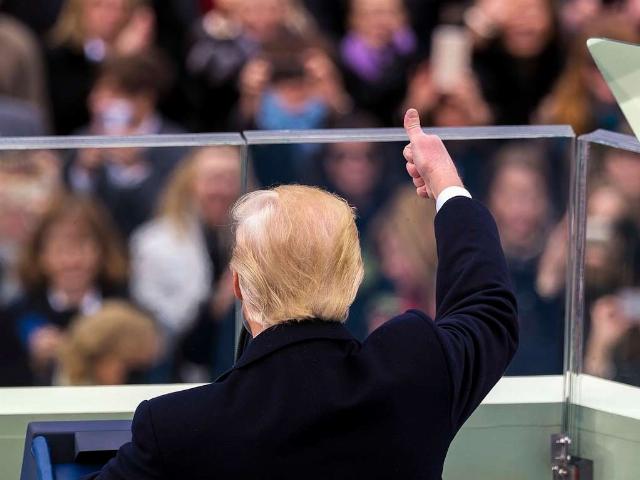Stormy double standard
As the curtain rose on what could arguably be dubbed the most theatrical event in recent political history, former President Donald Trump’s hush-money trial in New York, the stage was set not just for a legal battle, but for a spectacle that seems ripped straight from the pages of a satirical novel. On day one, Trump boldly declared the proceedings "an assault on America," framing the trial as nothing short of a politically motivated attack.
Indeed, Trump’s pronouncement before even setting foot in the courtroom was as much a performance as it was a defiant stand against what he views as a travesty of justice. This is, after all, a man who has mastered the art of the media soundbite, and his claim that “Nothing like this has ever happened before” was not just a comment on his own unprecedented predicament but a stark reminder of the bizarre political era we find ourselves navigating.
But as Trump rightly pointed out, the implications of this trial extend far beyond the courtroom. Describing the case as “election interference” underscores a worrying trend of politicizing legal processes, casting a long shadow over the integrity of both the judicial system and the democratic process. The mention of District Attorney Alvin Bragg as “George Soros’s Favorite DA” adds another layer to this narrative, suggesting a confluence of political and financial interests behind the scenes.
Trump’s characterization of the case as “nonsense” and the trial as a “Rigged Trial!” might seem like typical Trump hyperbole, but it touches on a deeper issue that resonates with many Americans: the perception of an unequal application of justice, where political affiliation seems to dictate legal scrutiny. The gag order placed on Trump, barring him from speaking about witnesses and jurors, while aimed at ensuring a fair trial, paradoxically serves to highlight this very concern. Trump’s protestation, “I want my VOICE back,” speaks volumes about the perceived stifling of dissenting voices in the current political climate.
Moreover, the logistical and political complications of potentially incarcerating a former president -- a scenario that seems as fraught with challenges as it is with constitutional questions -- adds a layer of absurdity to the proceedings. How would the Secret Service handle a former president behind bars? The question itself seems like the setup for a dark comedy.
Yet, beneath the veneer of spectacle and hyperbole lies a stark reality: the trial of a former president, on charges stemming from alleged hush-money payments, is a moment of reckoning not just for Trump but for the American political and judicial system. It is a litmus test for the state of American democracy, a measure of our collective ability to navigate the murky waters of political bias, judicial integrity, and the principle of equal justice under the law.
As Trump vows to “tell the truth” and insists that “they have no case,” the nation watches, riveted by the unfolding drama, yet uneasy about the precedent this trial may set. Will justice be served, or will the trial devolve into a political circus? Only time will tell, but one thing is clear: this is more than just a trial; it’s a reflection of the deep divisions and challenges facing America today. As we tune in to this political soap opera, one can’t help but wonder: Are we witnessing the trial of a former president, or the trial of American democracy itself?
Michael Letts is an educator, political commentator, and the founder of InVest USA, a nonprofit organization that provides bulletproof vests to law enforcement officers. With over two decades of experience in civic engagement and public discourse, Letts is known for his insightful analysis of American politics and his commitment to supporting first responders. His work emphasizes the importance of public safety, fiscal responsibility, and the preservation of constitutional rights.

FOLLOW US ON
Recent Articles
- The Truth About Trump’s Tariff Revisions … It’s All About 'The Art of the Deal'
- Remember, MAGA: This is No Time to Go Wobbly
- The Hill of Lies
- Trump’s Tariff Play: The Art of the Economic Reset
- Tax Cuts (and Tariffs) Need Not Be Paid For
- Tune Out the Media for What Matters
- Trump’s Tariffs Tackle Clinton’s China Carnage
- The Fruits of Trump’s Audacious Policies
- Will Trump’s Tariff Ambition Strangle MAGA in the Cradle?
- Navarro Tariffs are Too High
Blog Posts
- Wake up call for UK energy planners
- Protests for Dummies
- Maybe it's time to clean up the 25th
- Rage as a way of life
- An interesting challenge on tariff logic from former Reagan budget director, David Stockman
- Billionaire heiress Rep. Sara Jacobs makes a fool of herself in bid to defund DOGE
- Donald Trump and Pete Hegseth understand that war is about winning while minimizing American casualties
- From hero to zero in 75 days?
- Again, the times that try men's souls
- How is the U.S. the bad guy on tariffs?
- An easy explanation of this tariff tiff
- A tribute to Val Kilmer
- ‘Free trade’ is not as great as you think it is
- Trump’s tariff idea is consistent with every human society ever
- Jasmine Dixiecrat






